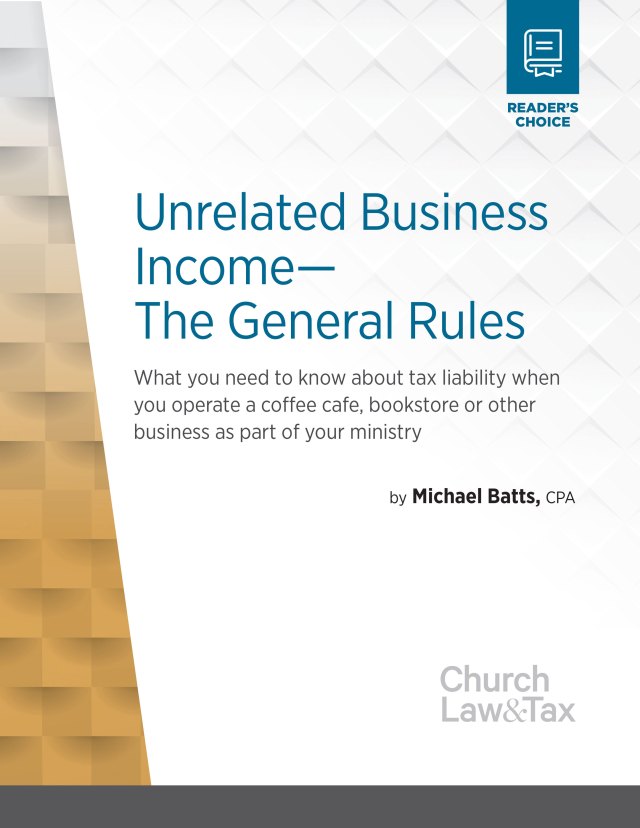What is the current tax law regarding advertisements a church publication? We would like to ask individuals and businesses to purchase ads in our anniversary program book. However, a board member said this was against the law. Is that true?
Selling advertisements in your church’s anniversary program book is perfectly legal, but there are two issues you need to consider.
First, are individuals and businesses that purchase ads in the anniversary program book entitled to a charitable contribution deduction for the amount they pay? The answer is generally no, since this is a classic “quid pro quo” arrangement in which the payors are paying a fixed amount in exchange for having their name listed as a “sponsor” in the official program.
Payors are not entitled to a charitable contribution under these circumstances since the value of their payment is commensurate with the benefit they receive in exchange. Payors of course can give more than the specified ad price, and the excess may be deemed to be a charitable contribution, depending on the circumstances.
Second, does the ad revenue received by the church constitute unrelated business income subject to the federal unrelated business income tax (UBIT)? If so, then the church would be required to pay taxes on its net advertising revenue, and to report the revenue and taxes to the IRS on Form 990-T. UBIT is imposed on the net income from any trade or business that is regularly carried on by a tax-exempt organization, including a church.
The tax law states that advertising revenue solicited and received by a church or other tax-exempt organization is not an unrelated trade or business subject to UBIT if it is a “qualified sponsorship payment.” This term is defined as “any payment made by a person engaged in a trade or business for which the person will receive no substantial benefit other than the use or acknowledgment of the business name, logo, or product lines in connection with the organization’s activities. Use or acknowledgment does not include advertising the sponsor’s products or services.”
To illustrate, if, in return for receiving a specified sponsorship payment, a church agrees to use the sponsor’s name or logo in acknowledging the sponsor’s support for a religious or fundraising event, the payment is a qualified sponsorship payment and is not subject to the unrelated business income tax.
However, a payment is not a qualified sponsorship payment if, in return, the church advertises the sponsor’s products or services. Advertising includes:
- messages containing qualitative or comparative language, price information, or other indications of savings or value;
- endorsements; and
- inducements to purchase, sell, or use the products or services.
- The use of promotional logos or slogans that are an established part of the sponsor’s identity is not, by itself, advertising. In addition, mere distribution or display of a sponsor’s product at a sponsored event is considered a permissible “use or acknowledgment” of the product rather than advertising.
- A payment is not a qualified sponsorship payment if its amount is contingent, by contract or otherwise, upon the level of attendance at one or more events or other factors indicating the degree of public exposure that is required. However, the fact that a sponsorship payment is contingent upon an event actually taking place does not, by itself, affect whether a payment qualifies.
Richard R. Hammar is an attorney, CPA and author specializing in legal and tax issues for churches and clergy.





